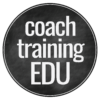 Before embarking into the deeper workings of creativity, Robinson takes the time to establish the multifaceted and dynamic nature of human intelligence. The primary problem he addresses is the supremacy of a certain, limited band of human intelligence, namely Intellectual Intelligence.
Before embarking into the deeper workings of creativity, Robinson takes the time to establish the multifaceted and dynamic nature of human intelligence. The primary problem he addresses is the supremacy of a certain, limited band of human intelligence, namely Intellectual Intelligence.
The rise of the IQ test
What was once a simple test, designed to quickly determine which candidates would be suitable for military service, soon became all the rage in schools. We still have versions of it in the standardized testing that we give students semi-annually.
But there are two problems with IQ.
The first is that everyone thinks that a high IQ means high intelligence. Higher intelligence equals higher worth. Which means that an IQ test is really testing the value of you as a human being.
The second is that you can practice for an IQ test and boost your score. You shouldn’t be able to practice for a test designed to measure an inherent, and seemly fixed, quality.
Biggest problem with IQ tests: Comparison.
The biggest issue I have with IQ tests, and where I see IQ being used unfairly, is that the current model of education forces everyone to measure up and use the same scale.
Schools segregate individuals according to age, academic grades, and standardized tests. Students quickly pick up on their placement and take it on as an identity.
What was once meant as an easy way for institutions to make judgments on qualified applicants, has launched millions of limiting beliefs about how smart or intelligent we are.
What about Emotional Intelligence?
However, coaching has a place in all of this. Daniel Goleman, in 1995, published a book entitled Emotional Intelligence. His book put the concept on the map. He points to another type of intelligence, related to feelings, emotions, and relationships. For Goleman, in many respects, emotional intelligence eclipses the value of intellectual intelligence.
Coaching excels in helping people become more aware of feelings, emotions, and inner motivation (ie. emotional intelligence). Furthermore, coaching doesn’t buy into the IQ myth. Each client gets to determine what’s important to her or him and make goals that may or may not include trying to get a high score on a standardized test.
Coaching is the antidote to the fixed-mindset thinking that IQ tests promote. The challenge that educators, and really everyone, faces is not to let school get in the way of students’ real education.

I am truly glad to glance at this blog posts which carries plenty of helpful information, thanks for providing these data.
http://schoolingtips.eu